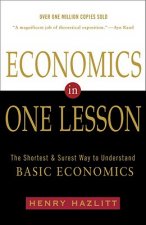
Kód: 02884254
'Amicable Solutions' in Trade Defence. What are the Political Economic Determinants of Accepting Price Undertakings in the EU?
Autor Dominik Kümmerle
Master's Thesis from the year 2015 in the subject Economics - Foreign Trade Theory, Trade Policy, grade: Distinction, London School of Economics (European Institute), language: English, abstract: When it comes to concluding a trad ... celý popis
- Jazyk:
 Angličtina
Angličtina - Vazba: Brožovaná
- Počet stran: 56
Nakladatelství: Grin Publishing, 2015
- Více informací o knize

Mohlo by se vám také líbit
-

Scientific Papers of Sir William Herschel: Volume 1
3112 Kč -

R.P - Air Raid Precautions
972 Kč -

Menanders Kolax
3318 Kč
Darujte tuto knihu ještě dnes
- Objednejte knihu a zvolte Zaslat jako dárek.
- Obratem obdržíte darovací poukaz na knihu, který můžete ihned předat obdarovanému.
- Knihu zašleme na adresu obdarovaného, o nic se nestaráte.
Více informací o knize 'Amicable Solutions' in Trade Defence. What are the Political Economic Determinants of Accepting Price Undertakings in the EU?
Nákupem získáte 121 bodů
 Anotace knihy
Anotace knihy
Master's Thesis from the year 2015 in the subject Economics - Foreign Trade Theory, Trade Policy, grade: Distinction, London School of Economics (European Institute), language: English, abstract: When it comes to concluding a trade defence proceeding in the European Union (EU), the regulations allow for three alternative outcomes: (1) a termination without measures, (2) the imposition of a protective duty or (3) the acceptance of a price undertaking. Price undertakings are voluntary offers by foreign exporters to revise their prices so that the Commission is satisfied that the subsidization or dumping margin and their injurious effects are removed.§§Some welfare economists have concluded that 'a rational policy maker will always prefer duties' (Pauwels and Springael, 2002, 135). Thus, there is no rationale for price undertakings from an income maximization perspective. However, others have highlighted the role of price undertakings as a diplomatic tool in the EU's neighbourhood policy, which is powerfully evidenced by a sharp decline in the frequency of price undertakings after the EU's Eastern enlargement in 2004 (Appendix 1). Yet, a paradox persists: Out of fourteen price undertakings accepted between 2006 and 2015, only four accounted for countries in the EU's immediate neighbourhood. In contrast, price undertakings were accepted by ten countries that fell outside of Europe, with the BRIC countries accounting for nine, and China alone for five (Appendix 2).§§In response to this paradox, the paper reviews the following question: What are the political economic determinants of accepting price undertakings in the EU? I find the acceptance of price undertakings arises from an institutional conflict that can be foreign induced. In contrast to judicialized systems, an incomplete delegation of trade defence in the EU has led to a politicization of the trade defence proceeding. This is characterized through the empowerment of three veto-players: Community industry, Commission, and Council. Powerful foreign parties actively capitalize on the engagement of political actors and - in an effort to achieve a less harmful outcome than duties - influence the three veto-players. Eventually, price undertakings are accepted by the Commission, if only the Council signals to exert its veto-rights.
 Parametry knihy
Parametry knihy
Zařazení knihy Knihy v angličtině Economics, finance, business & management Economics
1211 Kč
- Plný název: 'Amicable Solutions' in Trade Defence. What are the Political Economic Determinants of Accepting Price Undertakings in the EU?
- Podnázev: The Incomplete Delegation of Trade Defence and Foreign Induced Institutional Conflicts
- Autor: Dominik Kümmerle
- Jazyk:
 Angličtina
Angličtina - Vazba: Brožovaná
- Počet stran: 56
- EAN: 9783668108271
- ISBN: 3668108277
- ID: 02884254
- Nakladatelství: Grin Publishing
- Hmotnost: 86 g
- Rozměry: 210 × 148 × 3 mm
- Datum vydání: 15. December 2015
Oblíbené z jiného soudku
-

Principles for Dealing with the Changing World Order
447 Kč -

Why Nations Fail
259 Kč -

Misbehaving - The Making of Behavioral Economics
339 Kč -

Pyramid Principle, The
1050 Kč -

Rational Optimist
259 Kč -

Think Like a Freak
201 Kč -

Currency Wars
386 Kč -

Cult of We
283 Kč -

Team Topologies
486 Kč -

Freakonomics
201 Kč -

Start-Up Nation
259 Kč -

Microeconomics and Behaviour, 3e
2388 Kč -

Economics In One Lesson
368 Kč -

Essential Mathematics for Economic Analysis
1926 Kč -

Liar's Poker
301 Kč -

How I Made One Million Dollars Last Year Trading Commodities
979 Kč -

Irrational Exuberance
485 Kč -

Breakthrough Copywriter
427 Kč -

Leading at a Higher Level
770 Kč -

Business Model Navigator, The
754 Kč -

Human Action
947 Kč -

History of Economics
383 Kč -

Fed Up
606 Kč -

J R
574 Kč -

Radical Uncertainty - Decision-Making Beyond the Numbers
399 Kč -

Speak Up
437 Kč -

Art of Statistics
288 Kč -

Predictably Irrational
376 Kč -

The Invisible Hand
184 Kč -

A-Level Economics: Year 1 & 2 Complete Revision & Practice (with Online Edition)
661 Kč -

(Mis)Behaviour of Markets
333 Kč -

Price of Inequality
269 Kč -

Economic Facts and Fallacies
417 Kč -

Scrum - A Pocket Guide - 3rd edition
533 Kč -

Debt, 10th Anniversary Edition
645 Kč -

Economics 101
333 Kč -

Misbehavior of Markets
560 Kč -

Econometric Analysis, Global Edition
2028 Kč -

Hypomanic Edge
502 Kč -

ITIL4 A POCKET GUIDE
592 Kč -

Decision Book
399 Kč -

Cartoon Introduction to Economics
409 Kč -

Principles of Economics
389 Kč -

45 Second Presentation That Will Change Your Life
232 Kč -

Economics of the Public Sector
2157 Kč -

Discovery, Capitalism & Distributive Justice
491 Kč -

Economics: The User's Guide
347 Kč -

Freakonomics
171 Kč -

Phishing for Phools
409 Kč
Osobní odběr Praha, Brno a 12903 dalších
Copyright ©2008-24 nejlevnejsi-knihy.cz Všechna práva vyhrazenaSoukromíCookies



 Vrácení do měsíce
Vrácení do měsíce 571 999 099 (8-15.30h)
571 999 099 (8-15.30h)